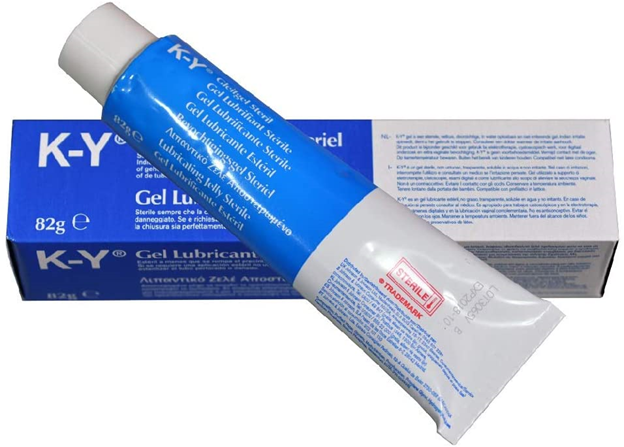What Is KY Jelly?
KY Jelly is a water-based personal lubricant primarily used for sexual intercourse or masturbation. Unlike petroleum or oil-based lubricants, it does not interact with latex condoms, diaphragms, or sex toys. In some cases, KY Jelly may serve as a substitute for ultrasound gel, assist in the insertion of suppositories or tampons, aid in medical examinations, or fulfill other similar purposes.
KY Jelly is water-soluble, with its main lubricating ingredients being glycerol (glycerine) and hydroxyethylcellulose. It includes antiseptic and preservative additives such as chlorhexidine gluconate, gluconolactone, methylparaben, and sodium hydroxide. The specific ingredients may vary slightly between different KY products, and it is free from added colors or perfumes.
Although non-greasy, KY Jelly may dry out during use. Its lubricating properties can be reactivated by adding water or saliva. Due to the presence of glycerol, KY Jelly has a slightly sweet taste and does not stain fabric.
Important Information
Follow all instructions on the label and packaging. Inform all healthcare providers about your medical conditions, allergies, and the medications you use.
Before Using KY Jelly
Do not use KY Jelly if you are allergic to it. KY Jelly does not offer protection against sexually transmitted infections (STIs) or reduce the risk of pregnancy.
Glycerol-containing personal lubricants like KY Jelly may trigger yeast infections in women prone to them. Ingredients like methylparaben (found in KY Jelly) might cause skin irritations in some individuals.
Consult a doctor or pharmacist before using KY Jelly if you:
- Have allergies
- Have cuts, irritation, sores, or wounds near your genital area or where you plan to use KY Jelly
- Are pregnant or breastfeeding
- Have a sexually transmitted infection (STI or STD)
How to Use KY Jelly
Use KY Jelly exactly as directed on the label or as prescribed by your doctor.
Apply the desired amount of lubricant directly from the tube to the skin or onto a condom. Reapply as needed.
If skin, penile, or vaginal irritation occurs, cease KY Jelly use immediately and wash the affected area with water. Seek medical attention if the irritation persists.
Do not ingest KY Jelly or let it come into contact with your eyes. If accidental ingestion occurs, rinse your mouth with water (do not induce vomiting) and seek medical attention for any adverse effects.
In case of eye contact, rinse immediately with water and seek medical attention if irritation persists.
Store KY Jelly in its original container in a dry, cool, well-ventilated area within a temperature range of 68 to 77°F (20 to 25°C). Protect it from direct sunlight and heat, and keep it away from incompatible materials, food, and drinks.
Ensure that the bottle, tube, or container is tightly closed and sealed when not in use. If containers have been opened, reseal them carefully and store them upright to prevent leakage. Avoid storing in unlabeled containers, and dispose of them properly to prevent environmental contamination.
Missed Dose
KY Jelly is used as needed and does not have a daily dosing schedule. Consult your pharmacist or doctor if the lubricating effects of KY Jelly are insufficient for your needs.
Overdose
If you accidentally ingest KY Jelly, rinse your mouth with water and seek medical attention if adverse effects persist. In case of skin irritation, wash the affected area with water and discontinue use. Seek medical attention if skin irritation persists.
What to Avoid While Using KY Jelly
Avoid getting KY Jelly in your eyes, nose, or mouth. If contact occurs, rinse with water.
KY Jelly Side Effects
Seek emergency medical help if you experience severe allergic reactions to KY Jelly, such as hives, difficulty breathing, or swelling of your face, lips, tongue, or throat.
If you develop severe burning, stinging, redness, or irritation at the application site, stop using KY Jelly and rinse the area with water. Contact your doctor if the irritation persists.
Cease KY Jelly use if you develop vaginal thrush (candida) after use. For some women, glycerol in KY Jelly can trigger such infections. Seek treatment for vaginal thrush from a pharmacist or doctor and discuss alternative lubricants. KY Jelly is odorless, colorless, and alcohol-free.
This list does not encompass all possible side effects; consult your doctor for medical advice. Report any side effects to the FDA at 1-800-FDA-1088.
Drug Interactions
KY Jelly, when applied topically, is unlikely to interact with orally administered drugs. However, it may affect the performance of other topical agents applied to the same area. Inform all healthcare providers about the medications you use, including prescription and over-the-counter drugs, vitamins, and herbal products.
KY Jelly is safe to use with latex and polyisoprene condoms, diaphragms, and silicone sex toys.
Always keep KY Jelly and other medications out of children’s reach, never share your medications with others, and use this medication only for its prescribed purpose.
Remember to consult your healthcare provider to ensure that the information provided here is relevant to your individual circumstances.















